Home » 2025: Short report IETF 123 in Madrid

This article was also translated to German.
The Internet Engineering Task Force (IETF) is an international organization responsible for the technical development of the Internet. The 123rd IETF meeting took place in Madrid in July 2025. Our founder was able to attend as part of a BMDS fellowship and reports on it in this blog post. The IETF consists of open working groups that develop standards and protocols that form the backbone of the Internet, including TCP/IP, HTTP, and DNS. The IETF operates on the principle of open participation and consensus-building and publishes its results in RFCs (Request for Comments), which serve as a global technical reference. The IETF’s goal is to ensure a functioning, secure, and scalable Internet (see: RFC 3935: A Mission Statement for the IETF).
The IETF’s „New Participant Program“ is aimed at people new to the organization, attending a meeting for the first time, and need support getting started. It offers orientation, introductory sessions, and mentoring programs to help new participants understand the meeting structure, the IETF’s working practices, and opportunities to get involved. The goal is to facilitate entry and encourage active participation from the very beginning. For example, participants learn how to submit proposals and what to consider when doing so. This is definitely helpful, as the IETF and its processes can seem a bit complex at first. A recording of the meeting in Madrid can be found here. In addition to the information on site, there is also extensive online information on how to get involved. Indeed, the IETF offers low-threshold access (everyone can speak up and contribute directly in meetings, discussions, or on the mailing lists).
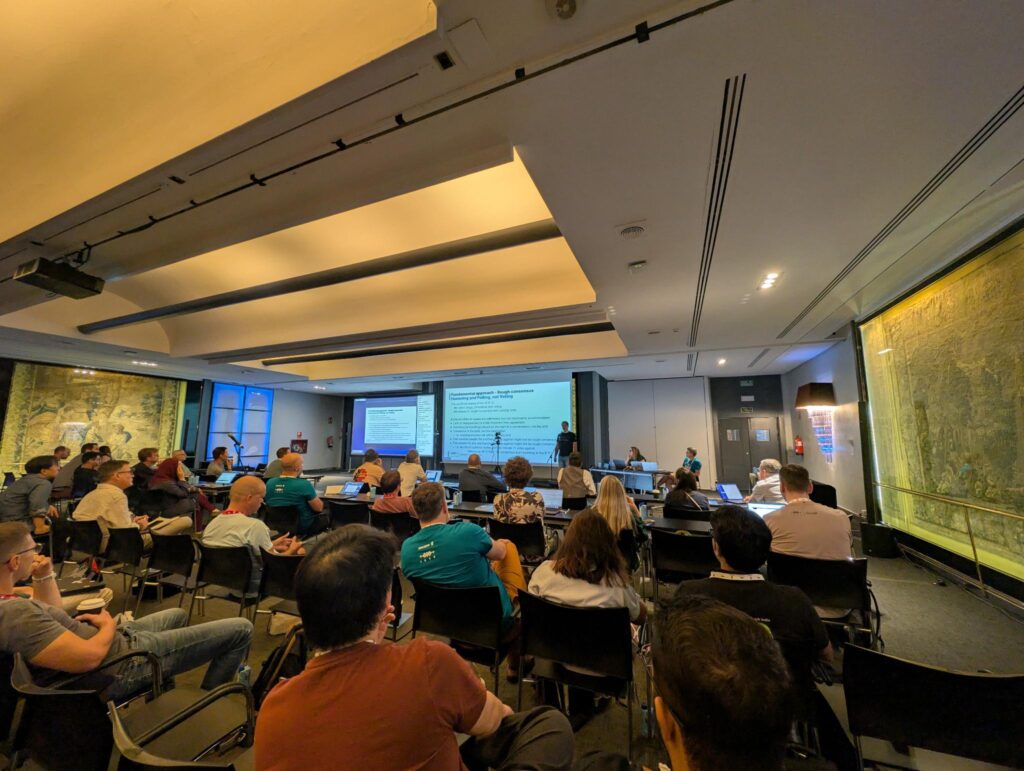
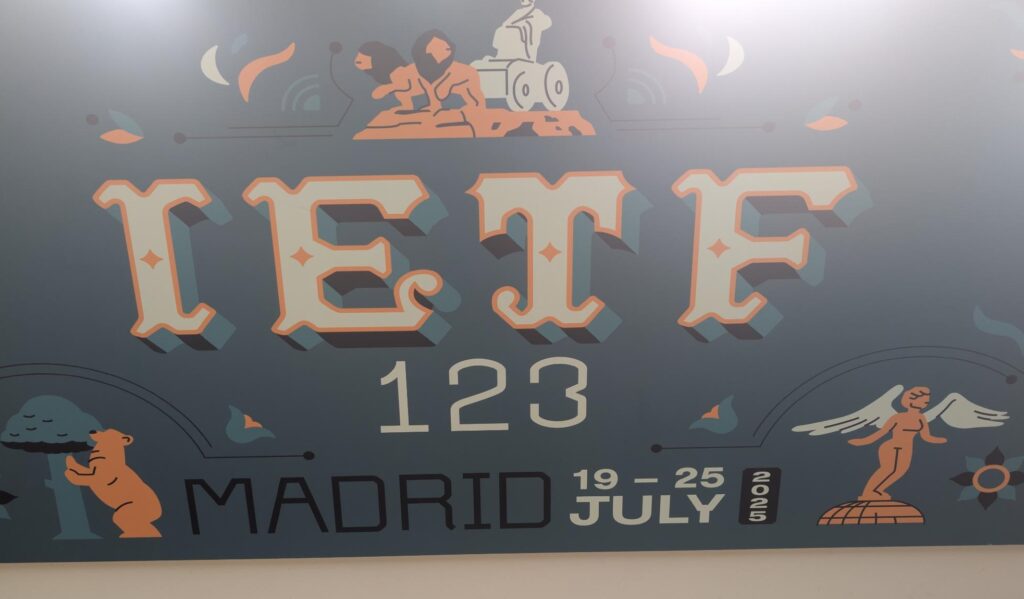
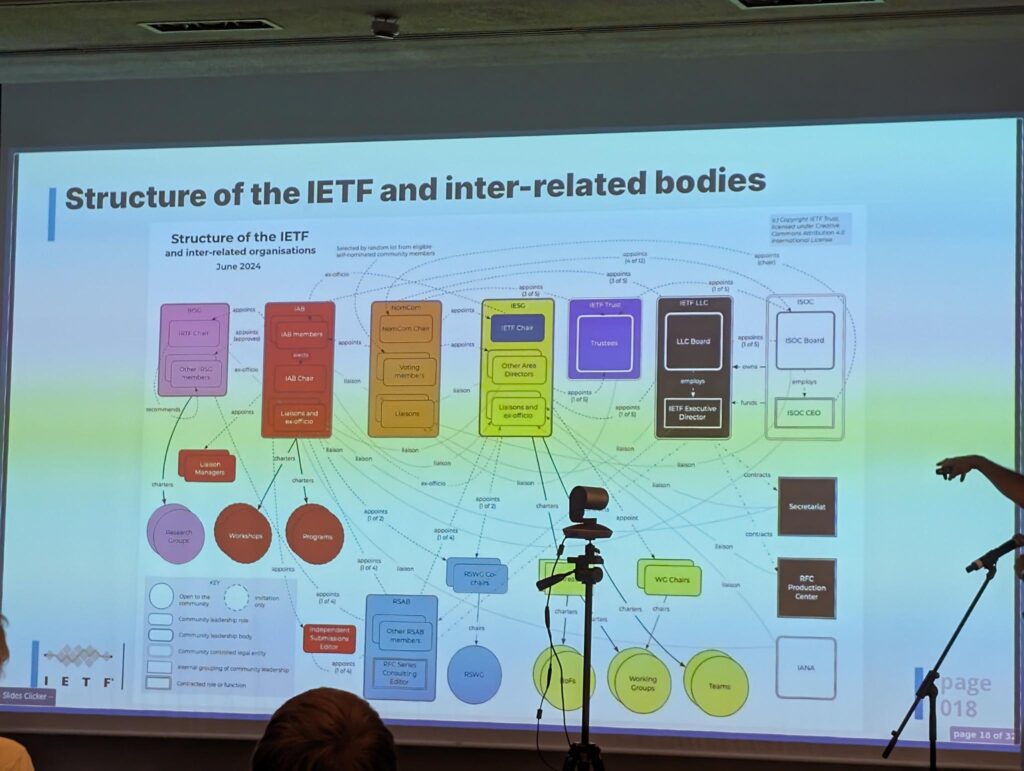
The IETF 123 agenda included a comprehensive and diverse program, largely reflecting the so-called Working Groups (WGs). These are working groups that delve deeply into a specific topic or technical protocol. The working groups can be viewed here.
There are technical working groups that discuss individual aspects of long-standing technical specifications and protocols, including working groups on TLS (recording), HTTP (recording), NTP (recording), and DNS (recording). In addition, there are working groups that have recently formed or address novel technologies. In this context, the following program items were on the agenda at the Madrid meeting: Quantum Internet Research Group (recording), Post-Quantum Use In Protocols (recording), Web Bot AuthBoF (recording), and Digital Emblems (recording).
Non-technical panels are also enjoying increasing popularity. For example, there is now a Human Rights Protocol Considerations Working Group (recording) which addresses, among other things, human rights and the impact of technology on society, and examines how these can be taken into account during the design of technical protocols. A particularly interesting talk entitled „Let’s Rewild the Internet“ by Dr. Maria Farrell explored what we can learn from nature for the internet and why diversity is extremely relevant on the internet. Among other things, it highlighted alternatives beyond Big Tech and why this is essential for a „healthy“ internet.
The Getting Ready for Energy-Efficient Networking (green) Working Group (recording) focuses on more (ecologically) sustainable use of resources.
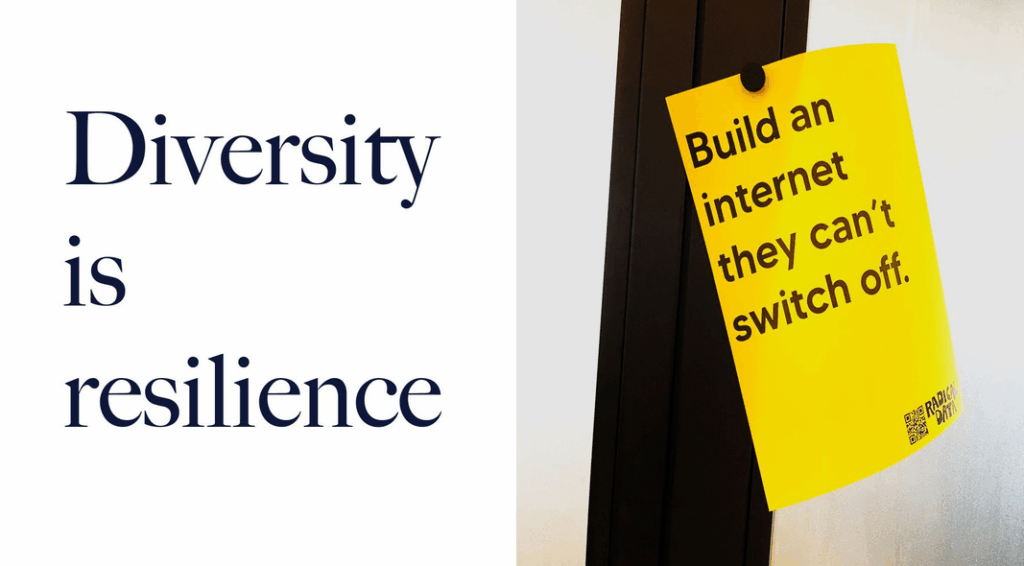

Indeed, a wide range of people participate in the IETF meeting. However, it is clear that the IETF (like other organizations in the tech sector) has considerable potential in the area of diversity, as it does not (yet) reflect society.

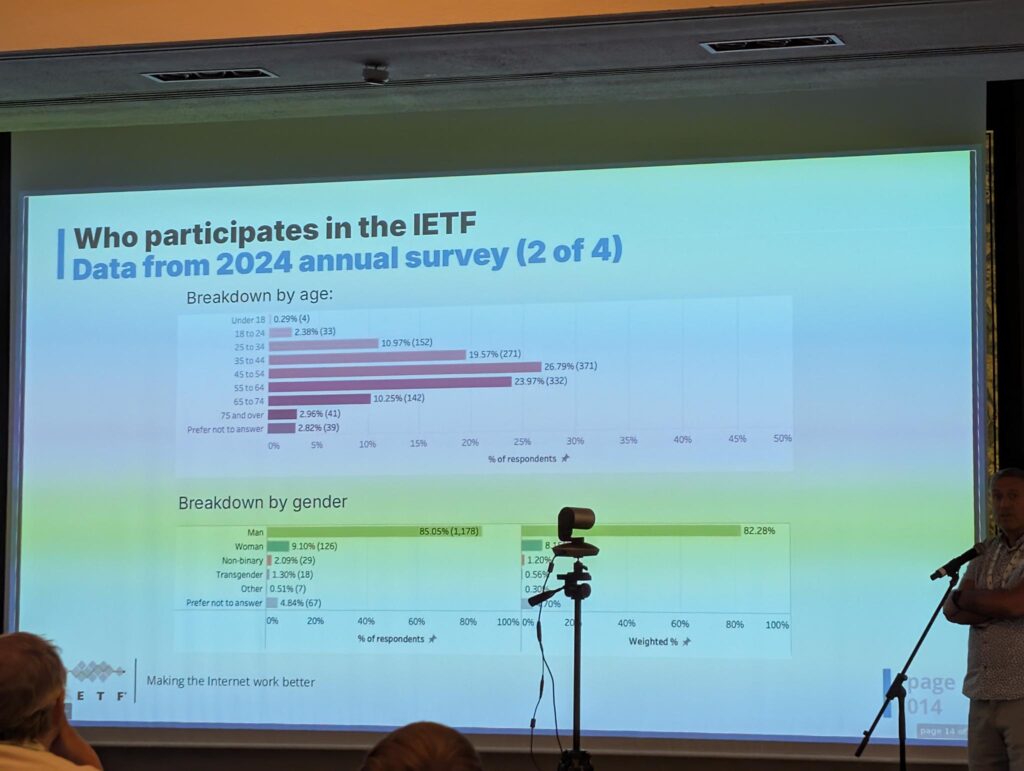
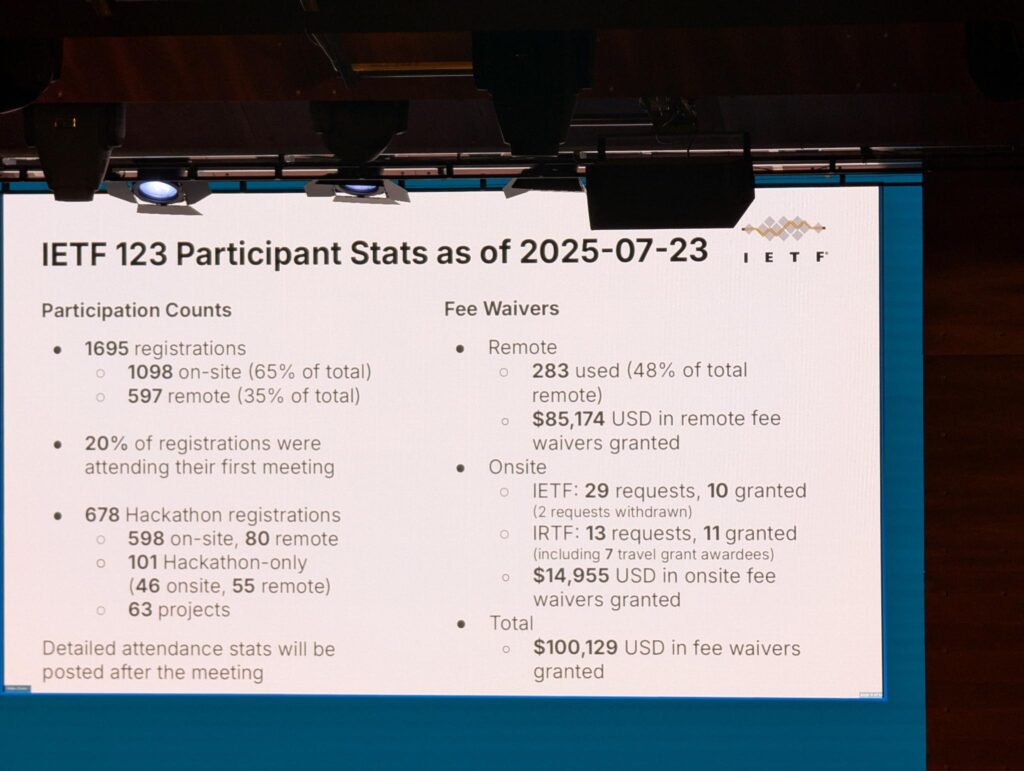
The IETF supports its members through funding programs to enable greater diversity. One of the most discussed items on the program was the so-called „IETF Plenary“ (recording). During this plenary session, numerous committees informed the community about their work and answered questions from the community. The global political situation and the consequences to be drawn from it were also discussed (see from 1:49:15).
The visit to the IETF 123 meeting in Madrid demonstrated the relevance of the Internet’s technical development and the comprehensive topics now being addressed. Furthermore, the technical community is also exposed to increasing geopolitical tensions, making it all the more astonishing that the Internet and the standards behind it largely function.
Ultimately, this is due to individual people in organizations and companies who listen to each other, discuss, and learn from each other, thus contributing – despite all their differences – to the interconnectedness of our world.
If reading this article has inspired you to get involved with the IETF or would like to gain insight into the IETF, you can easily join one of the numerous mailing lists, attend one of the upcoming meetings, or find more information on the website.
In any case, this will not be our founder’s last visit to an IETF meeting.
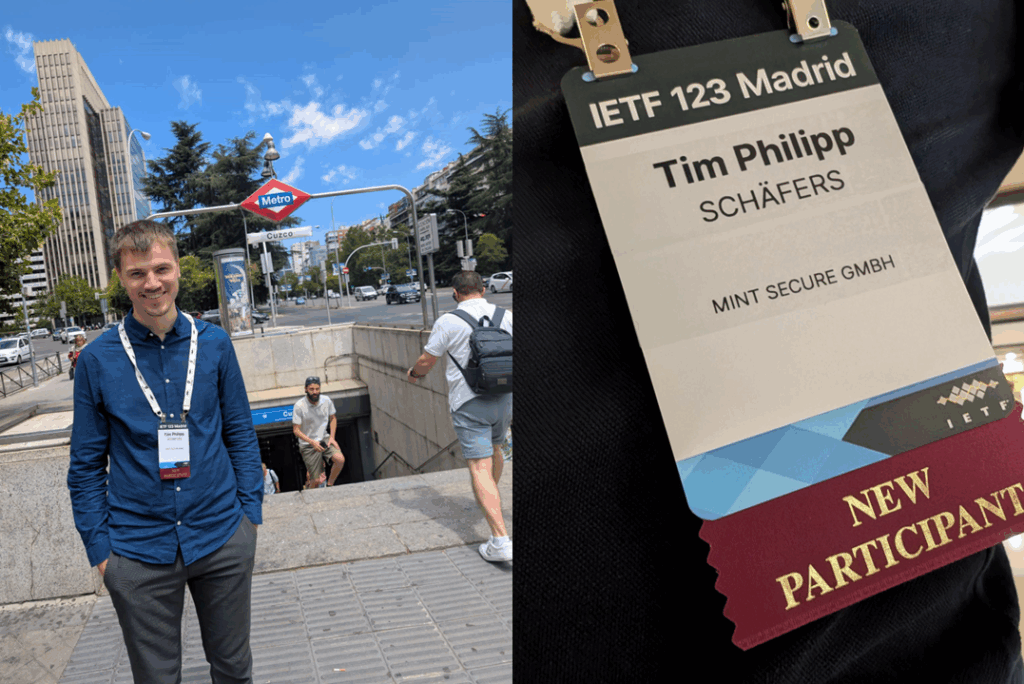
Copyright Mint Secure GmbH. All Rights Reserved.